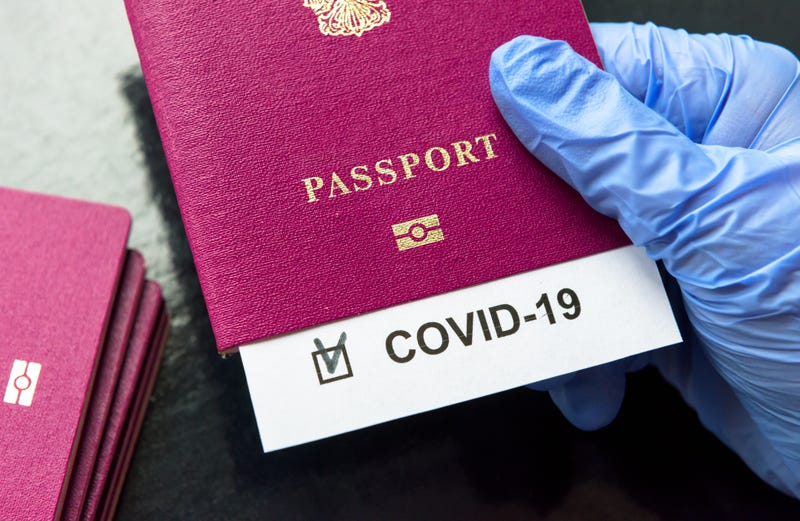
ST. LOUIS, MO (KMOX) - KMOX News recently looked at how we'll determine when the pandemic ends. For many people it hinges on the COVID vaccine. Now an increasing number of entertainment venues and travel companies say they'll require proof of vaccination from customers -- so-called "COVID passports."
Cruise lines have endured a No Sail Order during the pandemic, and were some of the first to call for vaccine documentation.
"If everyone there has had a vaccine, it is like a miniature herd immunity." Enbal Shacham is a Professor at the College for Public Health and Social Justice and Associate Director of the Geospatial Institute at Saint Louis University. Shacham says after more than a year of uncertainty, many people might feel comfort in having a better grasp of risks.
Yet she thinks talk of a vaccine passport is very premature.
"It seems early to worry about it. I think that our biggest challenge is to get vaccination out." Current figures show only about a quarter of US adults are now fully vaccinated. "I think we should be concerned about inequities due to not being able to access a vaccine and so if I can't go into a public place because I couldn't get a vaccine, that's not fair."
Analysis shows Black and Hispanic people have been vaccinated at lower rates than White people. The Kaiser Family Foundation found that high poverty and uninsured rates can be linked to lower vaccination rates as well.
Shacham points out there are still many unknowns. "We have to see how the vaccine actually works in real environments. And so, so far we're seeing that it continues to work, but we are also hesitant." After our interview, the CDC issued new findings that nearly 6,000 people who were already fully vaccinated contracted COVID. 7% required hospitalized. 74 died.
Shacham says there are other uncertainties. "We don't know what happens when a vaccinated person is exposed to COVID, do they transmit it to somebody else. Do they carry and transmit it to somebody else. That hasn't been studied widely."
When it comes to documentation for vaccine passports, records are kept by individuals states. "So right now we have this little piece of paper, that we've all gotten whenever we went to the doctor when we were kids. There's no national database that says this is who it is, this is who got what vaccines. We don't have ond electronic medical record."
Several countries have already implemented a vaccine verification system including Israel, China and Bahrain.
In the US, the Biden administration says it won't be issuing vaccine passports, but anticipates those will come from private entities currently working on initiatives.
Technology leads to other obstacles to a vaccine passport. "If you limit travel to only people who have the COVID passport, it creates two potential problems," points out KMOX Legal Analyst Brad Young of Harris, Dowell, Fisher and Young. "It creates a privacy problem, because now you're giving your personal protected health information to a third party company, whoever is making those apps." As Young points out with recent massive data breaches, apps and companies that create them, can be exploited and hacked.
Young also brings up the issue of equity. "Those at the higher income levels are going to have the resources available to go out and get a so-called covid passport. Other individuals, those who do not travel as much or lower income individuals may not have access to the type of cell phones that use those apps, or have access to know how, and the ability to know how to obtain those apps."
Young doubts in the end, that many business will require proof of vaccination. "If I'm Acme restaurant and I say you have to have a COVID passport to come in, and half of my clientele don't have it. All of the sudden now at a time when I as a restaurant employer desperately need business to keep going, I'm limiting access to my restaurant."
Some reports suggest that vaccine passports could be more of an issue for international travel than local venues.
@2021 Audacy (KMOX). All rights reserved.
